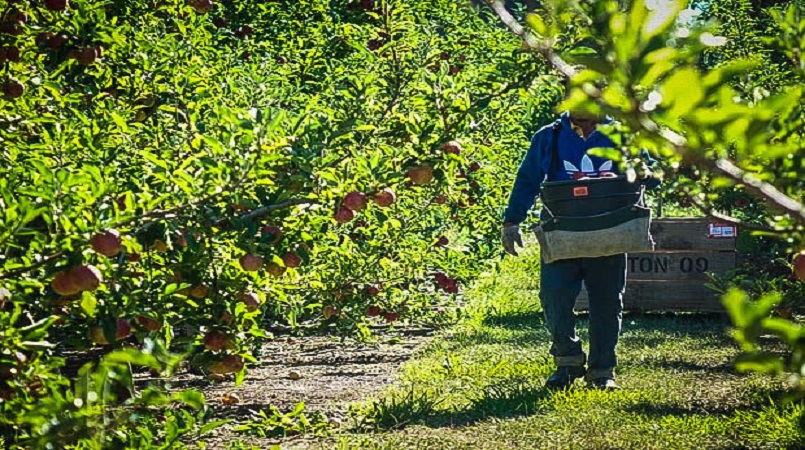
New Zealand's horticulture sector is hopeful the government will allow it to bring in Pacific seasonal workers for the upcoming picking season.
Along with viticulture, the sector's usual system of employing Pacific Islanders under the Recognised Seasonal Employer scheme has been disrupted by the pandemic.
Pipfruit New Zealand's Trade Policy and Strategy spokesman Gary Jones says his sector is three or four thousand workers short.
He said growers believed they should be able to bring in workers from covid-free countries.
Jones said plans were in place to ensure workers who come for the seasonal work could get back home again.
"We will be presenting them (the plans) to government, and I think they will be received reasonably positively. But I would hope that all the players here, including the Pacific Island governments, all come together to get a good solution, so that we can support the Pacfic Island economies and the New Zealand economy, in a combined, mutually beneficial way." he said.
"There are some challenges of course, and we under stand those. If we bring workers in we have to be able to get them out again.
"We've been working very hard to get last season's workers out. And there's flights that have been going just in the last week or so, that we've put charters on."
"The capacity in the Pacific, in those covid-free countries, to quarantine is probably the whole pinch-point in any plan to bring workers back in and get them."
Jones said the sector believed it should be able to bring the workers in, isolate them and test them in a system appropriate to the low level of risk they represent coming from covid-free countries.
"That would allow us to support the Pacific islands and the investment of getting workers home, and equally having strong isolation mechanisms in place and to cover the costs of those when we return the workers."
"That's something I think the government is up for, or the new government that's being formed I expect will be up for."
According to Andrew Craig, the Immigration Policy Manager at Ministry of Business, Innovation & Employment (MBIE), the government was aware of submissions from the horticulture and viticulture sector employers for a border exception for RSE workers to support the upcoming harvest.
"Steps have been taken to provide flexibility for onshore RSE and other migrant workers to work in the sector," he explained.
"Critical worker class exceptions are agreed by a group of Government Ministers with advice from cross agency-officials led by MBIE.
"These decisions balance a large number of factors, including humanitarian reasons, reuniting families, economic needs, and ensuring sufficient skills, experience and talents are available."
Hundreds of Russian and Ukrainian seamen have been flown into New Zealand this month to work in the country's deep-sea fishing industry, which is normally reliant on overseas workers and has been struggling amid the pandemic. However a number of these seamen have tested positive for covid-19 since arriving and are in isolation in their Christchurch hotel.
MBIE was asked why horticulture and viticulture sectors have not been able to fly in foreign workers like the fishing industry had been.
"Class exceptions are only considered where there is a critical workforce gap that cannot be filled domestically, there is no displacement of New Zealanders, and where industries can demonstrate a plan for education, training, wages and other activities that will attract New Zealanders into their sector."
Andrew Craig added that all exceptions must deliver a clear benefit for New Zealand and the impact on managed isolation and quarantine capacity must be manageable.
Meanwhile, Jones said the workers needed from the Pacific are those who are experienced, and able to be deployed quickly.
Time is of the essence, because a critical time for the apple industry approaches with thinning time in November and December, and then even more importantly the harvest season from February through to May.
